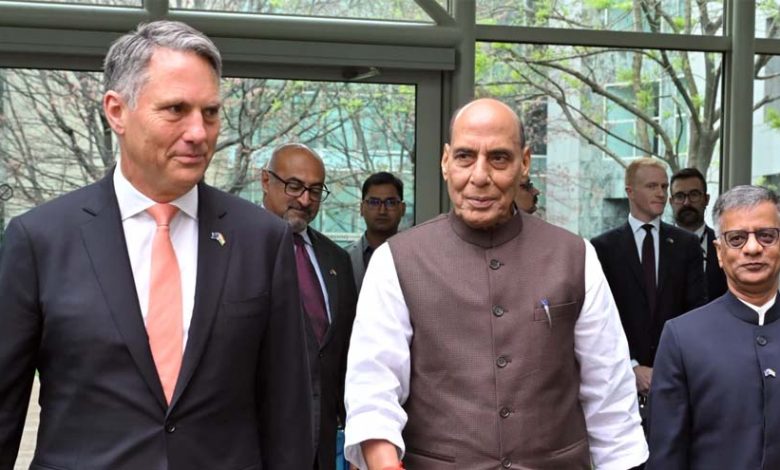India and Australia have formalized a security agreement encompassing military discussions and collaboration on submarines.

On Thursday, the defense ministers of Australia and India formalized a new bilateral security agreement, which Australia asserts promotes stability in the Indo-Pacific region.
Rajnath Singh is the inaugural Indian defense minister to visit Australia since 2013, stated his Australian counterpart Richard Marles.
“Australia and India are premier security allies, and our defense collaboration yields tangible outcomes to maintain stability in the Indo-Pacific,” stated Marles’ office.
Marles and Singh formalized an agreement that encompassed the creation of a forum for collaborative staff discussions between the two armed forces and collaboration in submarine rescue operations.
“The bilateral agreements to be executed today signify the substantial advancement in our defense collaboration and our mutual aspirations for its future,” Marles stated prior to the signing.
Enhanced defense cooperation were manifested in July when India participated for the first time in the biennial Talisman Sabre multinational military exercises in Australia.
Talisman Sabre commenced in 2005 as a collaborative exercise between the United States and Australia. In the current year, almost 35,000 military people from 19 countries participated.
India and Australia are connected to the United States and Japan by an alliance termed the Quad.
The foreign ministers of the four nations convened in Washington in July and consented to enhance their collaboration on maritime security in the Indo-Pacific region.
Raji Rajagopalan, a senior scholar at the Australian Strategic Policy Institute, stated that Singh’s visit to Australia was “highly significant” in both symbolic and practical terms.
Although an Indian defense minister had not traveled to Australia in 12 years, Marles had made multiple visits to India for high-level discussions, she stated.
Rajagopalan stated that India leveraged bilateral partnerships to engage in the strategic competition between China and the United States in the Indo-Pacific region.
Historical apprehension significantly affects India’s willingness to strengthen its relationship with the U.S. Rajagopalan stated that while China represents India’s foremost national security challenge, India must also collaborate with the U.S. to address the issue posed by China.
“If India is concerned about its relations with the U.S. and strengthening its position as a security ally, I believe that multilateralism and the Quad provide India with a viable alternative.” India is collaborating not only with the U.S. but also with many partners, including Japan, Australia, France, and others. It provides India with enhanced mobility regarding strategic positioning and relationship management,” she added.
Australia has been establishing bilateral security relations with its South Pacific island counterparts. On Monday, Australia formalized a defense treaty with Papua New Guinea to consolidate its military capabilities. It is Australia’s sole alliance-level security agreement aside from the ANZUS Treaty established with the United States and New Zealand in 1951.